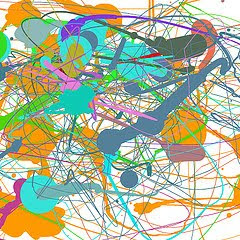Professor Johnson finally stated his definition of art which is, "The suitably technical, creative, and intentional embodiment of aesthetically engaging thought or emotion in any publicly accessible medium." I think art is something that expresses a certain mix of emotions aesthetically and communicates a message to the observer. Art can be in many different forms; literature, music, drama, paintings, sculptures, etc. It can express many different emotions; sadness, excitement, joy, madness, anger, etc. It can also communicate many different messages such as the destructiveness of war or the beauty of every day life. Art can be beautiful or ugly. It can be confusing. It can be pleasing. It can be anything, really, but within limits. Art needs a purpose. If something is created for no reason, then it should not be called a work of art. Sometimes a piece is questionable of whether it's actually art or mindless creation and everyone has their own unique aesthetic tastes when it comes to judging works.
My question to you is: In your opinion, where is the line drawn between something that can be considered a work of art and something that doesn't quite meet the standards?
Jackson Pollock Art.








.jpg)